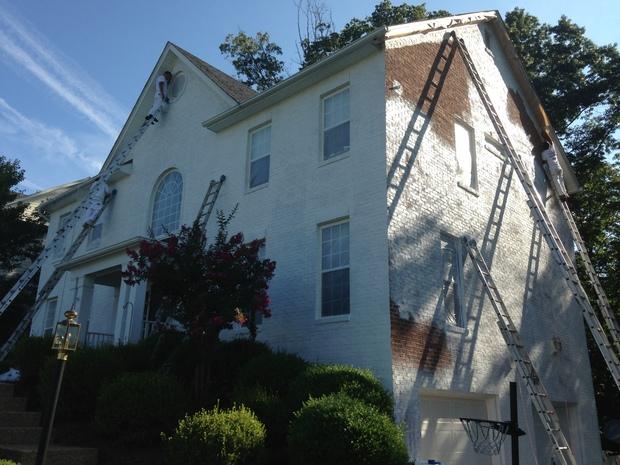5 Steps to Purchasing Fixer-Upper Homes
See if We Have Top-Rated
Remodeling Contractors in Your Area

If you're planning to purchase a "fixer-upper home" and then renovate it, be sure to review the deed, the property survey and the tax value of that property before you make an offer to purchase.
If the deed names a corporation or an "estate of" as owners of the fixer-upper property (which indicates that the transaction may get complicated), if there are covenants (restrictions) on the deed that would limit the use of the property in a way that is not beneficial to you, if there are any problems at all, then you can save yourself lots of time by finding these things out before you begin negotiating.
1. Talk to the neighbors.
Another good approach before you purchase and renovate a fixer upper home is to talk to the neighbors, who can be an invaluable source of information. They know what that area is like in the dead of winter, in the middle of the night, after a heavy rain, when school is in session, even since the factory closed. They know if there is sufficient parking. They even know where the teenagers hang out, and who has problems with flooding in their basement.
A friend of mine, his wife, and their three-year-old daughter went trick-or- treating on Halloween night before they bought their house. They chatted with all their prospective neighbors and found out lots of things they might never have known otherwise!
Talk to neighborhood realtors, community leaders, and newspaper columnists who cover your community, PTA presidents, school board members, the local chamber of commerce, and find out what's going on behind the scenes.
Some questions to keep in mind:
- What is the general trend in real estate values?
- What will the major improvements cost on average that you will need to make?
- What do the housing-starts statistics look like?
- Is your area of the state growing?
- Are businesses (and jobs) moving into or out of your area?
- What are the demographics (the age and standard of living) of the citizens in your immediate area and how are they changing?
- Have you been or are you about to be re-zoned by the city or county?
- Where are the new streets and highways going to be?
- Do you have contractor contacts to get quick quotes on jobs if necessary?
2. Research government master plans.
Contact the Planning, Community Development, and Housing departments in your local government complex. Meet with the planning personnel in all three departments. Find out if your street is about to be closed, paved or widened, if there is a zoning change coming that would allow a shopping mall to be built across the street, or if your area has been targeted for redevelopment activities.
Find the appropriate web site for your local governing body. Look at any part of the site that will give you more information about changing demographics, zoning ordinances, or special programs or regulations that affect you, your property or your neighborhood.
Also contact your state Department of Transportation and get information about traffic patterns or new highways that are only in the planning stages now.
What would happen to your property value if they relocated the highway about 10 miles further away from you?
What if you found out they were planning to add an exit to the interstate that would direct lots of new traffic through your neighborhood?
3. Learn about the area's sense of community.
Don't forget to consider how well the neighbors get along with each other. Is there a neighborhood association? Do the folks in this neighborhood tend to stay a while and get to know each other, or do they transfer in and out pretty frequently? Your sense of community will be important to you. It may even be more important than any other aspect of your evaluation.
4. Review zoning and land use ordinances.
Zoning maps will provide you with information about any utility lines or other public services or easements that must be kept clear of obstructions. Ask the zoning staff to interpret all of these designations for you to explain how each will help or hinder your plans.
Zoning staff may also be able to tell you something of the history of your property. For example, many years ago it may have been an old gas station, and there may be underground oil tanks on your lot that would have to be removed during your renovation. YIKES!
5. Ask about special home renovation programs.
Contact your city or county Zoning Administrator. Local zoning ordinances will define flood plain status, parking and landscaping requirements, housing density parameters (whether or not you can turn that single-family house into a duplex), and other land use rules.
While you're talking to local government planning staff, find out if there are any special home renovation programs available to you that might provide:
Your local government staff understands and appreciates that your home renovation will improve your neighborhood, not just your own property. They will often support you if they can.
More Tips & Advice For Your Home
- Related Articles
- Recent Articles

